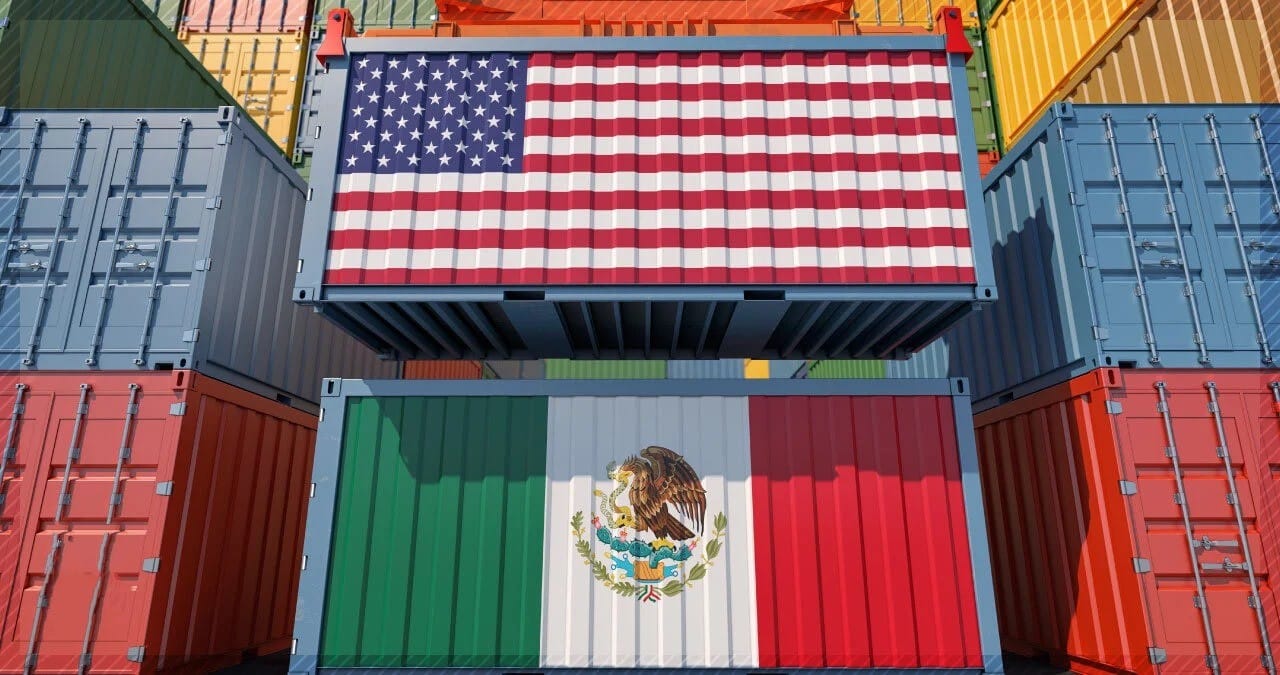
It is not news that the nearshoring phenomenon is reshaping Mexico’s economy, driving over $35 billion in Foreign Direct Investment (FDI) in 2023 alone, particularly in sectors like manufacturing & logistics with projections for manufacturing exports to rise by 33% from $455 billion in 2023 to $609 billion by 2028. $476B in exports to the US in 2023 placed Mexico before China as the U.S.’s top trading partner.
Though nearshoring is acting as the catalyst for economic expansion and technological innovation, we see the real opportunity lying in indirect investments made in human capital and structural needs fueling a digital revolution locally. By embracing this “second wave” of nearshoring and focusing on the sectors that drive innovation in financial services, healthcare, and education, the future of Mexico’s tech revolution is not just about reshoring supply chains—it’s about reshoring talent, innovation, and capital that will define the next chapter of its growth.
Supply-side efficiencies: From Supply Chains to Human Capital—The Tech Revolution Begins
Traditional industries like manufacturing and logistics are being transformed by technology, including AI and automation, to drive efficiency and competitiveness. This shift will reshape Mexico’s role in the global supply chain through upskilling and technological improvements, with applications like predicting supply chain disruptions, machine failures, real-time production control, and simplifying the sourcing of raw material.
Mexican manufacturers are not just adapting—they’re innovating, as seen in partnerships with the US-Mexico Foundation and American Chamber of Mexico. They’re moving into product design and advanced manufacturing, creating a feedback loop with global partners. This shift could enable Mexican companies to surpass competitors in design and frugal innovation, similar to how companies like ARM and Qualcomm advanced in microchip manufacturing by transitioning from production to design.
Equally important, nearshoring represents an investment in human capital that we believe will be a key factor in spurring the tech revolution in Mexico. As traditional businesses evolve, the workforce is developing specialized skills in AI, software, robotics, and automation. Mexico already has one of the highest rates of STEM graduates in the region (over 27%, per OECD), a figure that has grown by over 30% in the past five years. With over half a million software developers and 66% of Mexican companies planning to increase IT budgets by 2024, these skills are set to expand. This growth will impact multiple industries, addressing inefficiencies in high-demand sectors. AI will serve as a copilot in this transformation, enhancing human expertise, streamlining operations, and driving data-driven innovation. Mexico is well-positioned to leverage its workforce’s technological skills alongside manufacturing excellence.
Demand-Led Structural Improvements: Energy, Real Estate, and Fintech
The injection of foreign capital into the region and the subsequent development of human capital will create demand-side opportunities across multiple sectors to ensure nearshorings’ impact thrives and sustains. This trend is poised to endure, driven by geopolitical tensions and favorable local government policies and regulatory frameworks aimed at attracting foreign investment, further cementing Mexico’s position as a critical hub for nearshoring.
At Valor, we are executing against this very thesis. By leveraging upskilling to address inefficiencies in fundamental sectors of Mexico’s economy, we are positioning Valor to empower the emerging talent and businesses experiencing supply-demand imbalances that will leapfrog incumbents. In particular, we see financial services, energy, and real estate sectors presenting the largest opportunities today.
Our investment in Spot2 is a great example of how we are leveraging demand-led inefficiencies to respond to the nearshoring phenomenon by building robust tech-oriented companies.This B2B industrial and commercial real estate marketplace startup is tackling a $175B USD market that is yet to be fully digitized. Spot2 focuses on the industrial and commercial real estate sectors and offers a more efficient and transparent marketplace for tenants, investors, landlords, and brokers, significantly reducing transaction times from 6-8 months to just over 1-2 months.
The demand for efficient and tailored financial services is growing in Mexico as businesses, SMEs, and individuals seek better financing options through lending, payments, and credit infrastructure solutions. This need is driven by the nearshoring boom, making streamlined credit processes and diverse financing options crucial. Mexico led LATAM in fintech investment in 2023, surpassing Brazil with $828M. With 51% of adults underbanked, compared to 24% in Brazil, and a growing middle class, fintech startups have a unique opportunity to scale quickly by leveraging local talent. Government programs like Dimo and Codi have opened new opportunities, though further regulatory support and private sector investment are needed. Our investment in Nexu, an alternative lender in Mexico’s automotive industry, highlights the potential for fintech innovation, especially in specialized lending. Currently, only 2% of vehicle purchases are financed in Mexico, compared to 84% in the U.S., demonstrating significant opportunities in industry-specific lending.
Another massive opportunity lies in the dislocation between Mexico’s current energy supply and its ever-increasing demand. It is widely known that Mexico’s current energy supply is insufficient to fuel growing production and activity in the region. With some experts estimating that at least ~37GW of additional capacity is needed over the next five years, the investment requirements of ~$50B are far beyond the government’s means. The current administration plans to expand renewable energy to 45% of total generation by the end of the decade, and allocate 46% of the country’s total energy generation to the private sector. The need for private sector investments in energy is not only critical, but presents a unique opportunity for international investors. Solar energy is in its early days in Mexico, and Valor’s experience with Solfacil in Brazil is relevant here.
The necessity of cross-border collaboration
The capital flow patterns in Brazil illustrate the gradual increase in VC-backed exits, where once maturing to levels beyond 0.5% in 2020 (accumulated VC investments as a % GDP), notable VC-backed IPOs started to occur in Brazil, such as Stone, Afya, and Nubank, and as of now matured roughly to 1%. This demonstrates how early-stage investments eventually lead to market liquidity. Mexico is now approaching similar accumulated VC levels at 0.5% and the share of Mexico venture dollars in LatAm increasing 15.5x (2019-2023 vs 2014-2018), positioning it for potential exits in the coming years, with companies like Kavak, Clip, and Konfío poised for significant liquidity events, mirroring Brazil’s trajectory. To fully capitalize on this opportunity, local stakeholders must work closely with international investors to shape the ecosystem, as was done in Brazil. Partnerships between foreign investors and local players are essential for driving innovation, with cross-border collaboration and intellectual capital sharing being key. This approach is at the core of Valor’s strategy.
While local businesses may face capital constraints, foreign investment is key to driving the innovation necessary for Mexico’s economic transformation. On the other hand, it is essential for international investors to leverage local partnerships to navigate the intricacies and complexities of the local Mexican business environment. Pairing global investors with local partners offers enhanced protection and increases the likelihood of success through shared knowledge and expertise.
Our approach combines global insights with local expertise to drive successful investments, allowing us to transfer successful strategies across geographies while adapting to local business dynamics, as was the case with our investments in Wellhub, Merama, Cloudwalk, and Bitso.
This is how we plan to drive innovation in Mexico, ensuring that nearshoring-fueled transformation continues to gain momentum.

